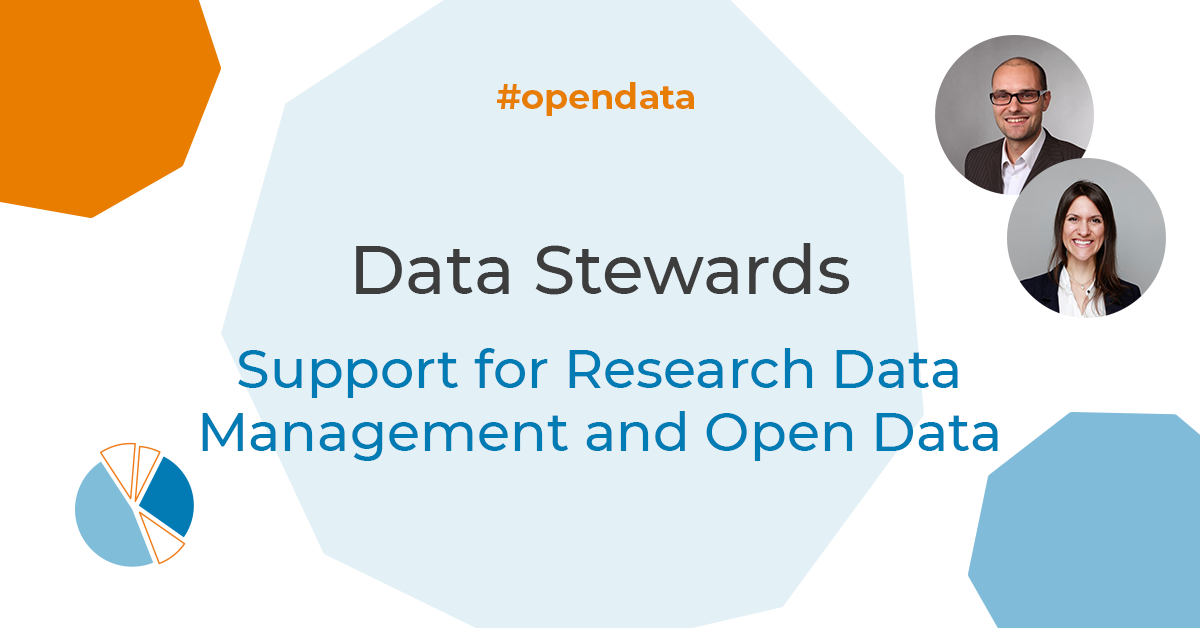In recent years, some universities and research institutions have started to appoint data stewards. What exactly is their role and how can they support researchers? In this interview, two data stewards from the University of Basel explain their role and give tips on how to get started.


Birgit Knöpfli and Dr Christian Rutzer work as data stewards at the Faculty of Business and Economics at the University of Basel. This makes them the first point of contact for all researchers at the Faculty of Business and Economics at the University of Basel when it comes to data management issues. This includes, for example, questions relating to the creation of data management plans for project applications, the secure storage of (sometimes sensitive) data and ensuring the reproducibility of research work. In this interview, they give an insight into their work.
What is the added value of your role from your point of view?
The range of questions that researchers turn to us with is very diverse and includes IT-related concerns – such as questions about data storage or the use of specific software – as well as legal aspects relating to the handling of sensitive data.
Against this background, we see the added value of our role in two main aspects: Firstly, we offer researchers a clear point of contact at their faculty that they can turn to with their questions. Secondly, we have a broad network within the university. This enables us to call in specialised experts if our own expertise is not sufficient to answer a question. In addition to our knowledge of data management, this is precisely one of our advantages over the researchers: we know which people we can turn to with specific questions.
What experience have you had so far as data stewards?
The Data Stewardship Programme at the University of Basel is currently being set up. We are therefore still relatively new in this function. Our experience so far with the central organisation, the training in data management and the network as a whole has been very positive. There is always someone at the university who can help us with tricky questions and is happy to do so. We have also received positive feedback from researchers so far. We think that young researchers in particular benefit from having data stewards as contact persons, as professional data management is becoming increasingly important in business studies and economics, and not just for the publication process and the reproducibility of research results.
What advice would you give to someone who is completely new to research data management?
Research data management should not be seen merely as a tedious compulsory task or a formal requirement for project applications. Because if you consider the essential steps of research data management from the outset, it is easier to maintain an overview during the data work and you can save yourself a lot of work, especially during the subsequent publication process.
What do you think are useful first steps for Open Data?
The trend in business studies and economics is clearly moving in the direction of an Open Data culture. In our view, this is very welcome. For publications in renowned economics journals, it is now necessary to provide code and data that ensure the reproducibility of the final results. Many authors now go one step further and make their work fully reproducible by making all raw data up to the final analyses and the corresponding codes available in publicly accessible repositories (some journals, such as the American Economic Review, now even make this a prerequisite for publication). In addition, it can be observed that the standard set by the top journals with regard to the provision of data and code is increasingly being adopted by other journals in the field of economics.
Against this background, professional data management is almost indispensable and young scientists would do well to start early.
We would like to thank Birgit Knöpfli and Christian Rutzer for the interview.
You can find more information on Open Data in the Open Economics Guide
Dr Christian Rutzer is Deputy Director of the Center for International Economics and Business (CIEB). The research centre is based at the Faculty of Business and Economics at the University of Basel. Dr Christian Rutzer can also be found on LinkedIn. Birgit Knöpfli works as a research and administrative assistant for the Chairs of Human Resources and Organisation and Labour Market Economics at the Faculty of Business and Economics at the University of Basel. Both are also available to the faculty as data stewards.
